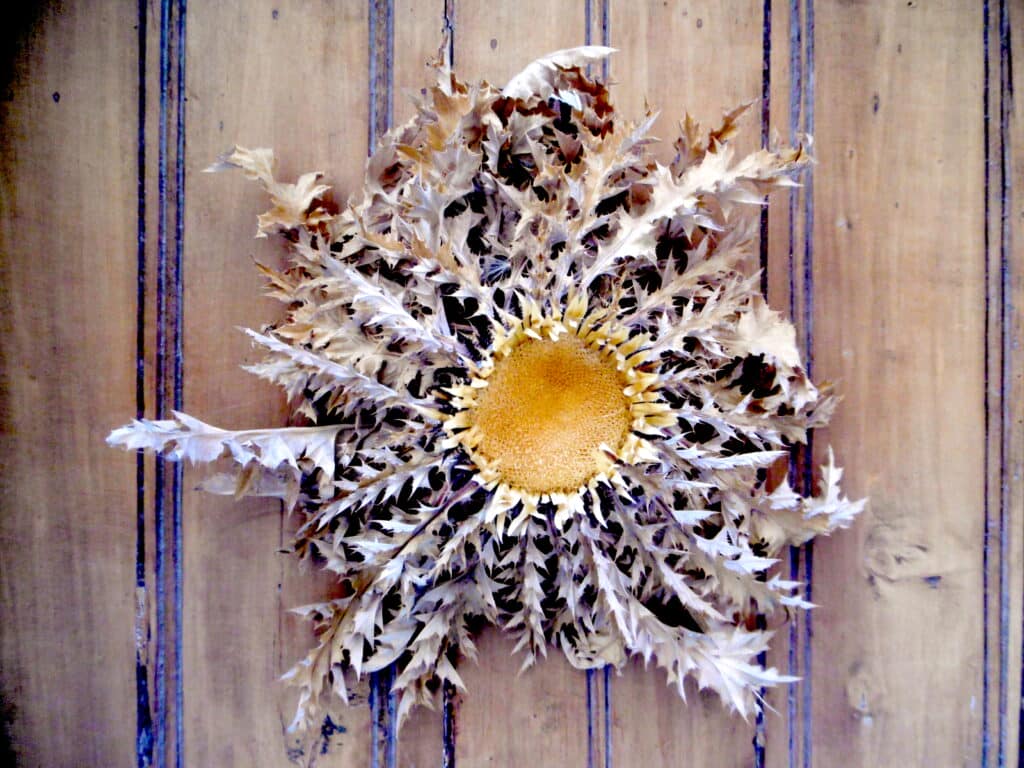The legend of the Eguzkilore is deeply rooted in Basque folklore. It tells the story of a magical flower that protects homes from evil spirits and malevolent beings. Eguzkilore translates as “flower of the sun”. The flower is actually the dried bloom of the Carlina acanthifolia, a thistle-like plant indigenous to the mountainous regions of southern Europe.

According to the Basque mythology, Amalur (Mother Earth) created the moon to comfort the Basque people. These people lived in a land filled with dense forests and rugged mountainsand were afraid of the supernatural beings that they believed roamed the night. However, the people soon discovered that these night creatures were not afraid of the moonlight. Amalur then decided to create the Eguzkilore, a flower that resembled the sun. In this manner, the flower would also protect the humans at night.
Thus, the Eguzkilore is a flower that holds its light even during the night. The flower’s round shape and radiating petals symbolize the sun, representing light, life, and protection. It also serves as a reminder of the sun’s power to banish darkness and fear. Hung on doors, this flower was believed to ward off witches, trolls, and evil spirits, acting as a barrier against harm.
The tradition of placing Eguzkilore on doors persists, especially in the mountainous regions of the Basque Country and Navarra. Thus, while the fear of supernatural beings may have diminished, the tradition of hanging Eguzkilore flowers on doors continues in some Basque homes. It serves as a cultural reminder of the past, a blend of ancient belief and enduring tradition. The Eguzkilore remains a potent symbol of protection, resilience, and the enduring human desire for safety and light in the face of the unknown.





